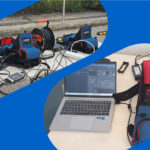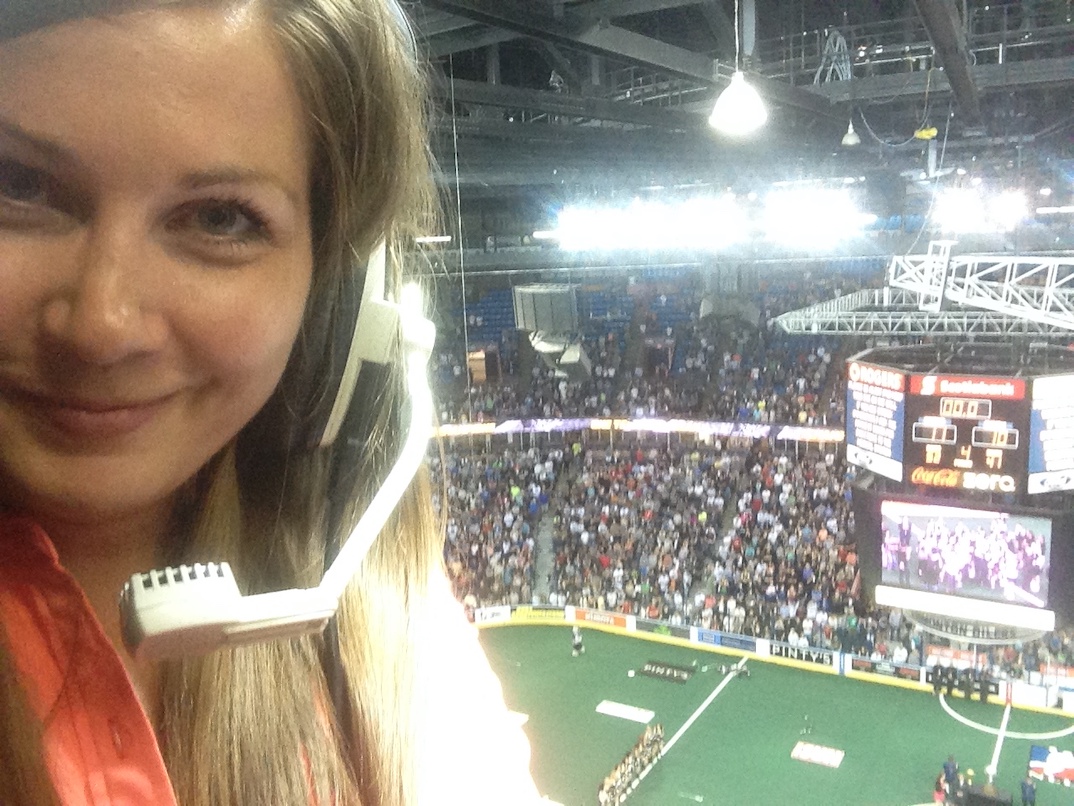Broadcast and events freelancer Julie Greening-Winkel has more than 16 years of experience in broadcasting and has worked on hundreds of broadcasts and events in various roles – from planning to production and technical. She has also helped to deliver coverage of a huge range of sports, including ice hockey, football, soccer, baseball, basketball, horse racing, athletics, cycling and car racing.
In this interview, Julie – who has a long history of working with equipment from EVS, which provided this content – now shares the best and worst aspects of her job, her undiminished passion for broadcasting, as well as how in spite of the current outage of live sports, she’s coped with the current Covid-19 pandemic.
What are the best and worst parts about working in broadcasting?
One of my favourite parts about working in broadcasting is the travelling. I’ve been fortunate enough to see most of the world, meet new people, make new friends, and work on some fantastic projects! Because of that, I don’t think there’s any part of broadcasting I would consider the worst. Even what may be viewed as a bad situation – gear hasn’t arrived, tough working or living conditions, or a tight deadline… you’re with your co-workers going through the same adventure. It’s moments like that where you really bond with them, and they go from being colleagues to being friends. Any job is what you make of it.
What are your favourite types of jobs?
The ones that are challenging and where you learn something new. Whether it’s sport climbing, dynamic new athletics, or even race walking – I enjoy learning about the sport itself, and the intricate details which are the most important in covering each event. For example, not everyone may have a good understanding of all the rules – but by learning this it instantly helps make yourself more relevant and helpful to any production. You can help the producer and director by showing them a key replay, confirming the right athlete in a shot, an interesting graphic stat, and sometimes can help find some surprise storylines.
What other events would you like to work on in the future?
Living in Canada, we don’t have coverage of dart tournaments. I’ve worked events overseas where it has been two weeks after the venue hosted a dart tournament, and there’s still confetti falling from the rafters. I’ve also heard some great stories from colleagues that have the pleasure of broadcasting cricket. It sounds wild and I’m sure it would be a blast. I’m oddly excited for my first “tea break”.
How are you handling the current COVID-19 situation and what’s your advice to other freelancers who are going through these difficult times?
Just like every other freelancer I was disappointed in finding out that all sporting events have been postponed or cancelled. Mentally, it was the unknown that was the hardest: how long this will take, how will it resume, and with who?
When the Olympics were postponed, we as a broadcast community realised that this won’t go away anytime soon. It was around that time that I learned about a group of coworkers that started up a Zoom meeting, at the same time each week. When I joined in, it was amazing to see the smiling faces from our broadcast community and it was very therapeutic regardless of the topic.
My advice to other freelancers would be to stay in touch with their broadcast community. Whether that is by Zoom and with former crew members, having that interaction, keeping in touch with the latest going-ons in the industry is crucial. Remember that a lot of what you are feeling with the uncertainty is shared, and you’re not alone.
How do you think broadcasting will evolve in the coming years?
With so many working from home, it’s amazing how much work can be achieved whilst not on site. Looking at the broadcast industry and the latest advancements in IP, more productions are becoming remote or being produced from a centralised location. I would hope I can get my home office set up to participate in these remote productions – and it’s encouraging to see colleagues start to figure out the logistics and share photos of their setups. I believe there will still be some on-site productions with strict Covid protocols, but not enough to make up for the volume of work that many of us are used to having.
I will miss the travel and catching up in person, but working from home has the potential to open up more doors and new clients. Potentially, a freelancer’s work schedule could be busier as we no longer need to lose time to travel days. Working from home would also help a better family/life balance and at the end of the day, that’s what’s really important.






